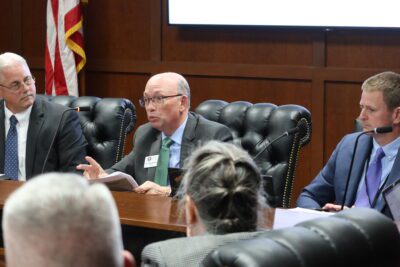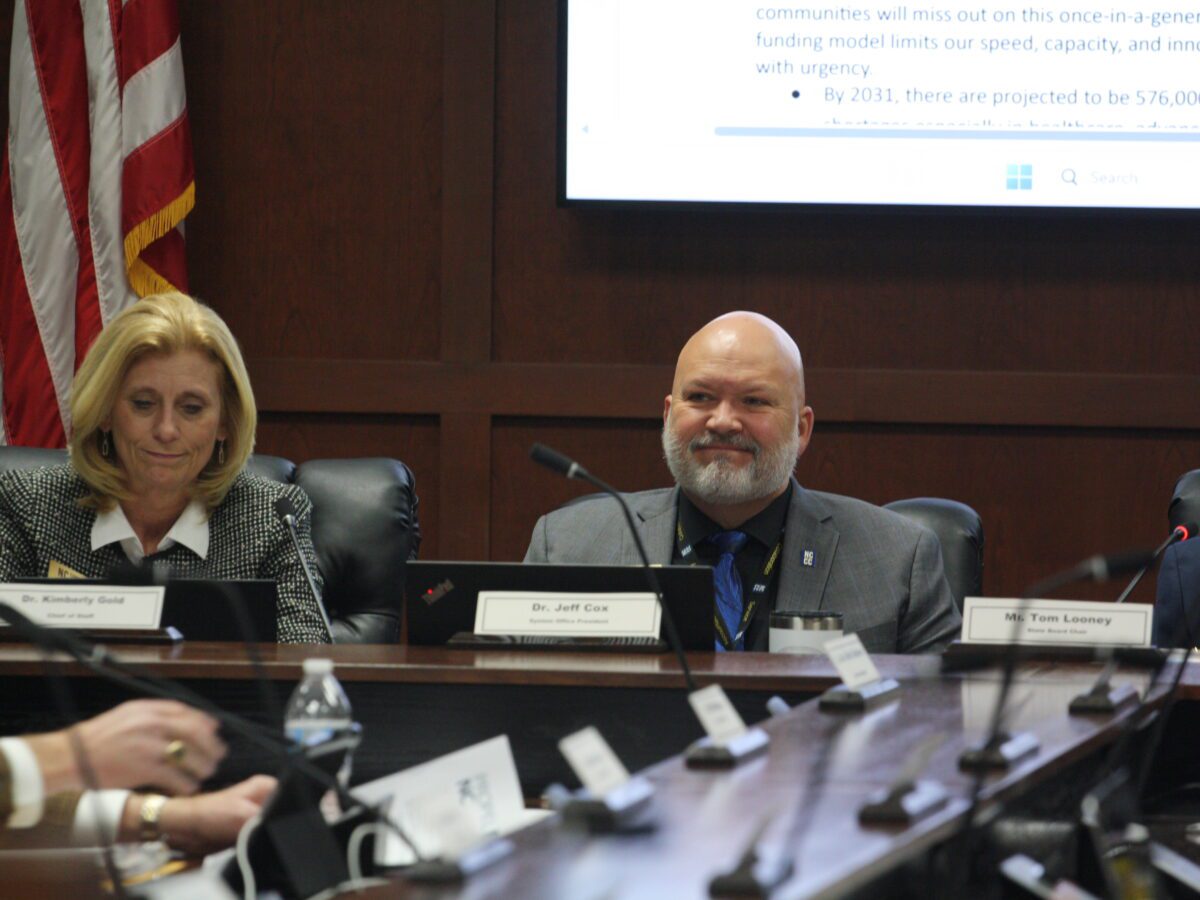

|
|
Four months after officially beginning work in August to revise its funding model, the N.C. Community College System (NCCCS) unveiled its new plan, called Propel NC, at the State Board of Community Colleges meeting Jan. 19.
The plan received a unanimous vote of approval from all 58 members of the N.C. Association of Community College Presidents (NCACCP) in December. The full State Board is set to vote on the modernization plan in February and then will request consideration of Propel NC by the legislature during the short session in April. Between now and then, NCCCS stakeholders are working to engage business leaders across the state, too.
“This is an orchestrated effort with businesses in all 100 counties and across all 58 colleges,” State Board Chair Tom Looney said at Friday’s meeting. “Exciting times are ahead for us here in the North Carolina Community College System.”
Propel NC
The NCCCS’ current state funding model was created in 2010 and last updated in 2013.
The vast majority of funding for the state’s 58 community colleges comes from state appropriations, with $1.5 billion allocated each year of this biennium.
The system’s current funding model allocates resources to the colleges in proportion to the number of full-time equivalent (FTE) students they enroll in each of their programs. Certain courses receive more state funds than others based on a four-tier funding model.
Under the proposed model, funding based on FTE would remain in place, but the current FTE tiers would shift to “workforce sectors” instead. The 16-person Propel NC work group says this will move the NCCCS toward a labor-market driven model of community college programs.
The anticipated cost for this part is approximately $68.6 million, according to the system.
“North Carolina is booming, but we do not have enough skilled workers to meet the growing demand. If we don’t change the way our community colleges do business, our residents and our communities will miss out on this once-in-a-generation period of economic growth. Yet, the current funding model limits our speed, capacity, and innovation. It needs an overhaul. And we must move with urgency.”
Quote from NCCCS document on Propel NC
Under this model, all curriculum and continuing education (CE) courses would reside in the same workforce sector. A nursing curriculum and nursing CE course would be funded the same way, for example.
The proposed sectors largely focus on health care, technology, and trades. Courses not on this list would be held harmless and retain their same value, but they would not be labeled in tiers. There would be a catch-all sector for transfer and general education courses.
“Tier funding never resonated with anyone, no one ever knew what (the tiers) meant,” Finance Committee Chair Lisa Estep said. “This model… resonates with everyone and ultimately brings so much back to the student and to business, so I think its great we’re going down this path.”
Under the proposed model, courses will be ranked and valued by statewide salary job demand data. The course rankings will be updated every three years.
On Friday, Lt. Gov. Mark Robinson, an ex-officio member of the State Board, expressed his support for the plan.
“Moving from tiers-based to labor-market driven, I would suppose that would give us a lot more flexibility, so I think that’s very good,” Robinson said. “Community colleges are going to be essential (to the economy)… so I’m glad to see the work that’s going on.”
In addition to instructional funding based on FTE, colleges receive a base allocation for institutional and academic support, which includes additional funding for multi-campus centers.
The NCCCS modernization plan proposes to increase the base allocation 5.8%, “which closes the gap to actual spending patterns and account for inflation,” the NCCCS document says. “This modification would also increase the enrollment allotment above 750 FTE based on this increase in other costs funding.” The anticipated cost for this request is about $24.4 million.
The NCCCS modernization plan also includes two other focus areas, listed below.
- Enrollment increase reserve. The current enrollment growth reserve was implemented in 2010 in response to the large number of students enrolling in community colleges after the Great Recession. The system wants to request $6 million in non-recurring funds for a fixed per-FTE amount for any colleges that go over the enrollment threshold set by their FTE for the fiscal year. The system would then like to build replenishment of the fund into the recurring enrollment growth fund in the state budget.
- Excess tuition retention. Excess tuition receipts currently fund the enrollment increase reserve. The NCCCS work group would like to change that, allowing excess tuition receipts to return to the college which generated them but only on years when the system as a whole generates excess receipts.
Together, the request has a nearly $100 million price tag. Meetings between NCCCS leaders and legislators have already started, per the system.
“I couldn’t be more proud of where we’ve arrived at this point in time. I think this is a game changer for our system,” NCCCS President Dr. Jeff Cox said in November. “It answers the call that I think we’re hearing from our legislature and our governor about the community colleges’ critical role in meeting the workforce needs of the future of our state. …It aligns our system in a way we’ve just never been before.”
You can view more details about Propel NC, including projections for the proposed workforce sectors, here. You can read more about how community colleges are currently funded in this EdExplainer.
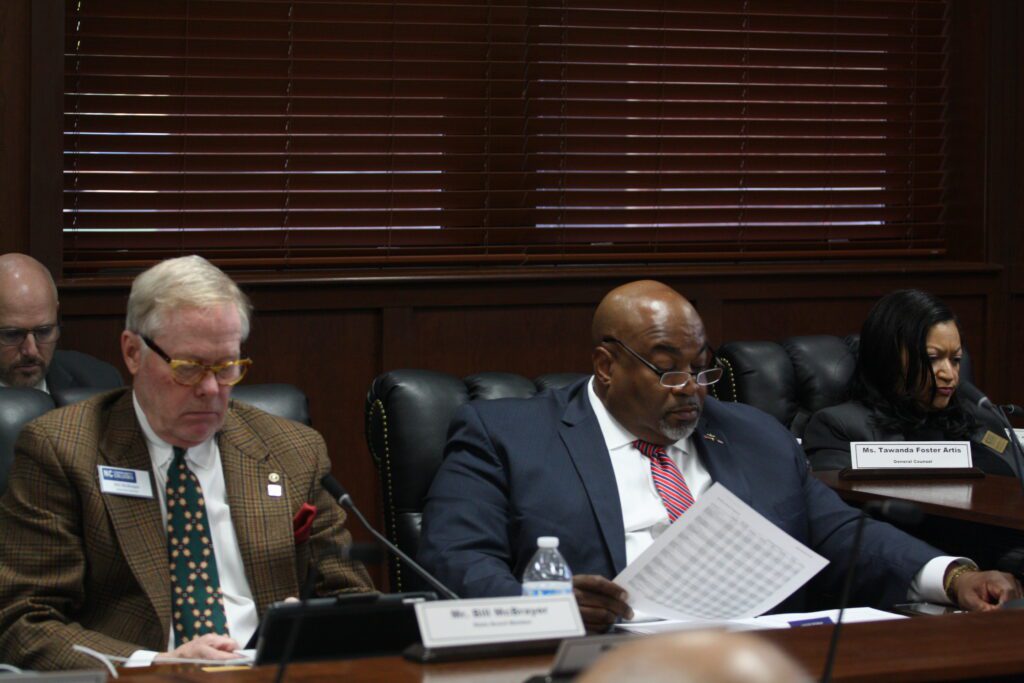

Increased oversight of presidential reelections
State law has historically given the State Board of Community Colleges the authority to approve or deny the election of local college presidents by local boards of trustees. The new budget, passed in September, adds reelection authority to the Board.


This is being interpreted as requiring State Board approval for any contract renewals, extensions, or amendments for local presidents, and the State Board on Friday proposed an amendment to the State Board of Community Colleges code to reflect that.
On Friday, the Board approved two reelections: Wayne Community College President Dr. Patty Pfeiffer and Forsyth Technical Community College President Dr. Janet Spriggs.
The Board also approved Dr. Michael Rodgers as the next president of Wilkes Community College. The college’s board of trustees announced the new president shortly after the meeting. The search process began after Cox announced his new role as system president.
“We did a nationwide search and had 42 applicants for the position,” said Wilkes Community College Board Chair Jay Vannoy. “We are excited to announce Dr. Michael Rodgers as the next president of WCC. He has the education, knowledge, and experience to lead our college. We are looking forward to working with him to continue and build upon the work Wilkes Community College is doing to educate and train our students. I also want to thank Morgan Francis for his great leadership as interim president during this transition period.”
Dr. Rodgers will take the helm in early June.
The meeting included several other personnel decisions and announcements.
- The Board announced Kelly Klug as the new director of grants with a salary of $105,000. Klug will serve as a resource for grants within the system.
- The Board voted to create a new position, State Director of the College Ready Graduates and Developmental Education, who will lead the Career & College Readiness Graduate (CCRG) program. The position will be funded through a reorganization of system funds.
- Cox also recognized two new staff members: Dr. Chris Harrington, the new lead of ApprenticeshipNC, and Dr. Zach Barricklow, for the new position of associate vice president for strategy and rural innovation.
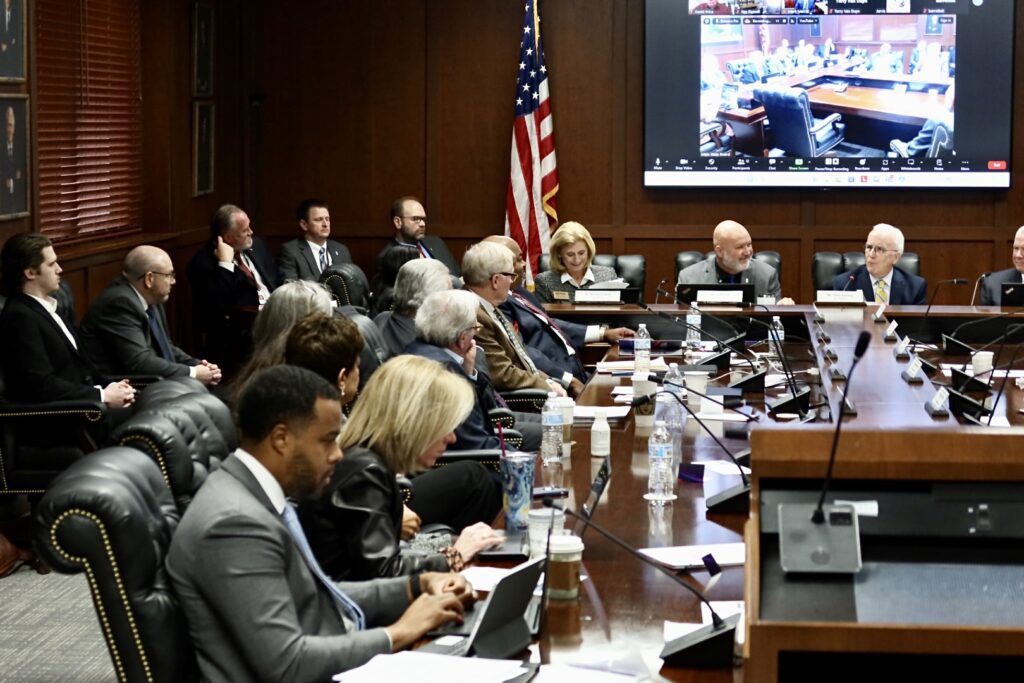

Student completion strategies
Strategies to advance student success and completion were discussed several times at January’s meeting.
First, the Board’s “transformative discussion” focused on strategies for increasing student completion.
The discussion included information on CUNY ASAP|ACE Collaborative, a program established by the City University of New York (CUNY) in 2007 to increase timely degree completion. Today, the program serves 25,000 students a year, and the collaborative partners with institutions across the country to replicate their model.
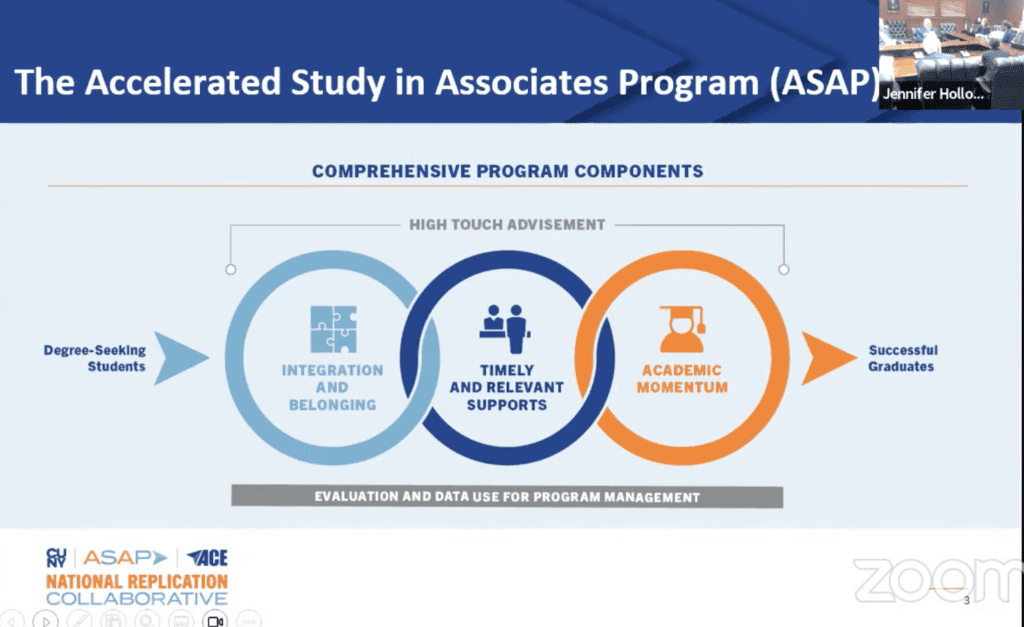

Dr. Shun Robertson, the UNC System’s vice president for access and success strategy, spoke about how the UNC System has replicated this model with a focus on community college transfers. The program, TrACE (Transfer, Accelerate, Complete, and Engage), provides financial aid and advising to eligible students.
Only 36% of N.C. community college students graduate within two years of transferring to the UNC System, Robertson said — nearly 20 percentage points lower than the four-year completion rate for first-time, full-time students. Despite this gap, community college transfers have, on average, equivalent GPAs in their first year as their peers.
“So they are qualified, they are doing well in our institutions,” Robertson said. “They’re just not graduating at the same rate. So why is this?”
TrACe is currently offered at three institutions right now — Appalachian State, UNC Greensboro, and East Carolina University.
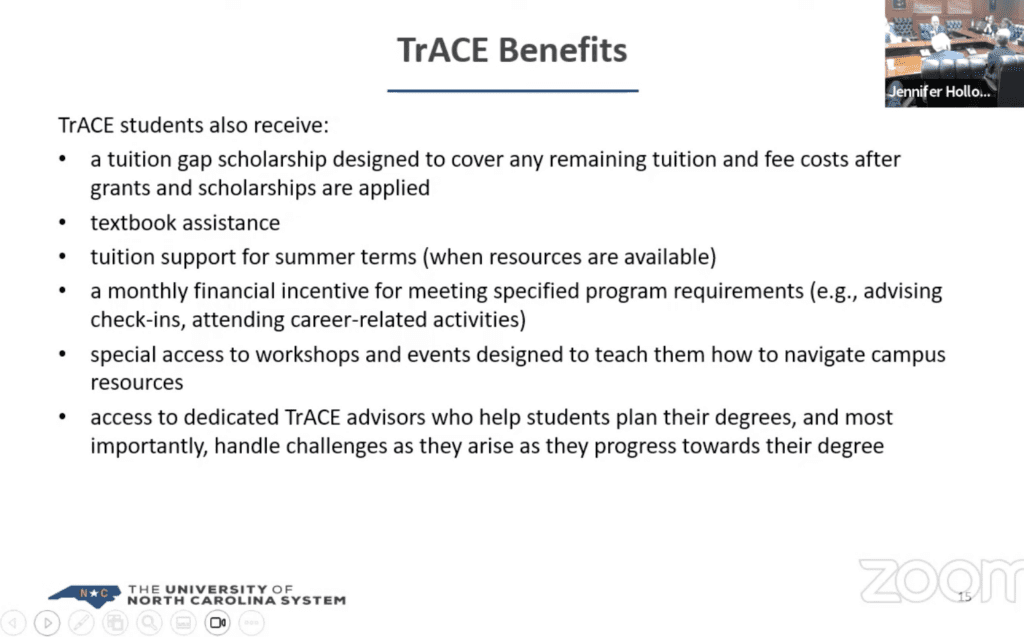

Scott Byington, associate vice president of onboarding and advising at Central Carolina Community College (CCCC), also spoke about student completion strategies.
At CCCC, 62% of students are part-time, he said. About a third of students are parents, and 17% are single parents. Another third of students struggle with housing and/or food insecurity.
The college has worked to address these challenges in a few ways: more intensive advising, accelerated course options, emergency funding for micro-grants, and laptop loaners, among other things.
These strategies are working, Byington said. But most of the strategies are funded through grants, which don’t always offer very sustainable funding.
“We need these graduates. There are thousands of jobs coming to North Carolina, and we need students who are ready,” he said. “It’s going to require investment to get more of these students to not just start, but to finish.”
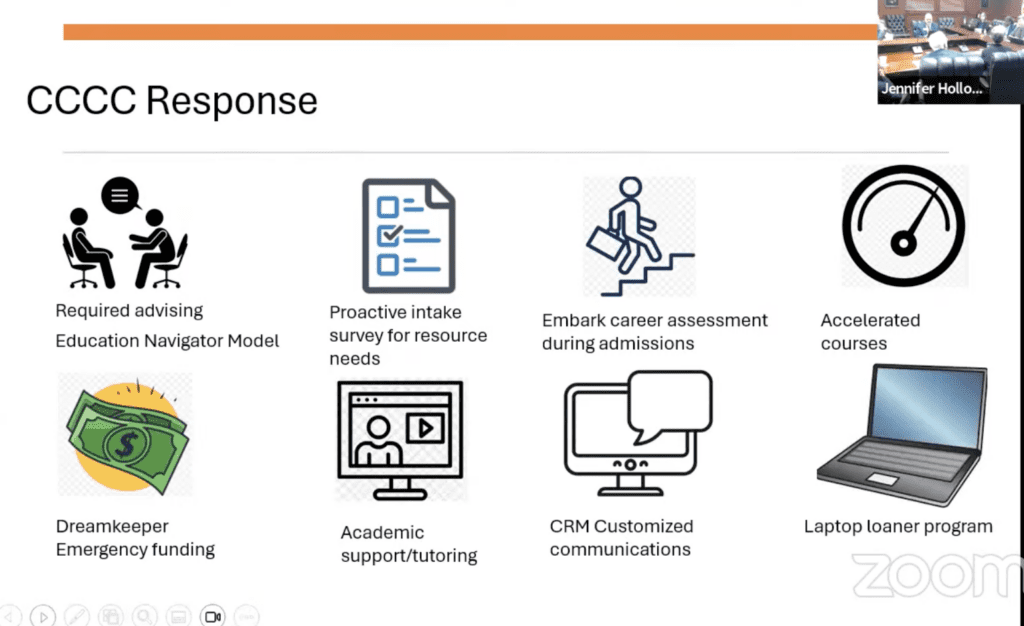

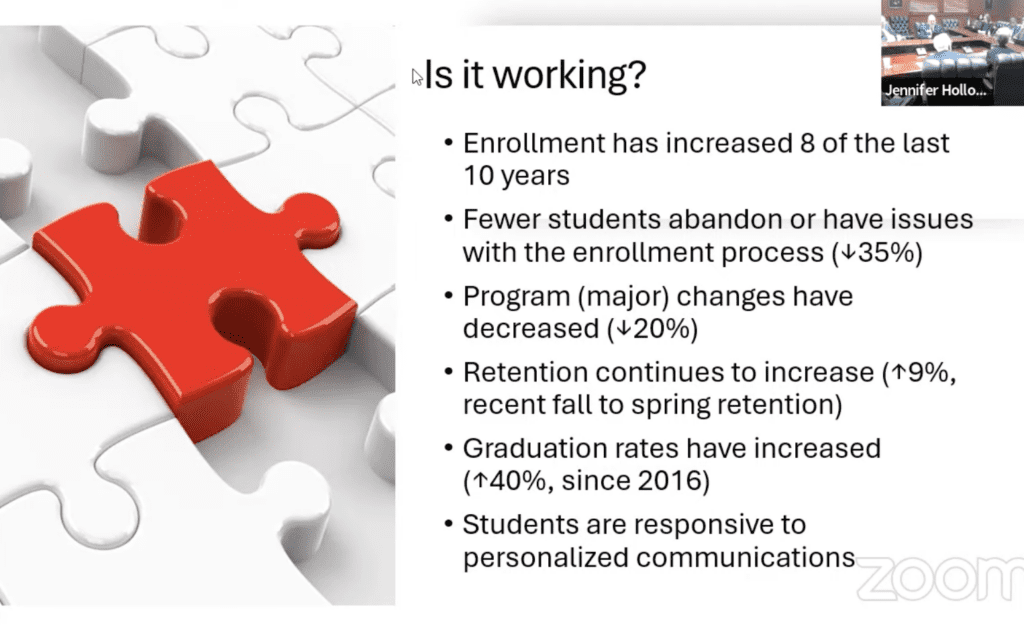

Recommended Article
Minority Male Success Initiative
The Board also heard and approved its legislative report on the Minority Male Success Initiative, which was established in fall 2003 to improve the retention and graduation rates of minority male students. Since then, “over 10,000 students have received support and assistance towards achieving their educational, professional, and civic goals,” the report says.
This is the first year the system has had to provide a report regarding the program.
“Beginning in the 2016-17 academic year, the System Office redesigned the Minority Male Mentoring Program to more closely align with the student success initiative taking place within our system. As a result, the North Carolina Community College Minority Male Success Initiative was designed to support the educational and professional aspirations of minority males in the community college system. Improvements were guided by monitoring and assessing performance, improving the data used for these assessments, collaborating with stakeholders, implementing recommendations, and re-assessing student performance.”
Excerpt from 2022-23 report on the Minority Male Success Initiative
As of July 2022, 21 community colleges received funding for the initiative. The amount of state funding has remained the same since 2016 — $810,000 for a 3-4 year period. The report says funding is “allocated through a competitive funding process.”
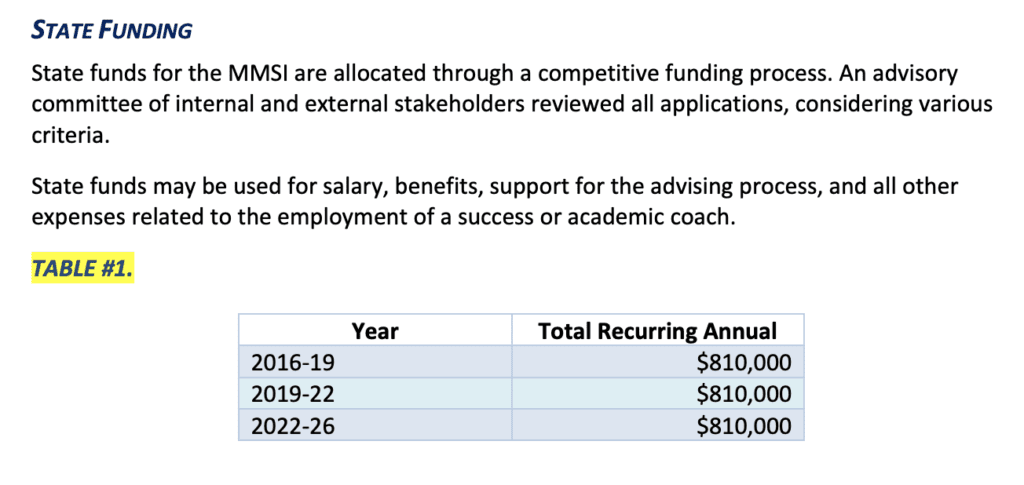

“This is a critical program,” said Sarah West, co-chair of the Board’s programs and student success committee.
Several Board members, including West, emphasized the need for such an important program to include more funding to expand the initiative to more colleges and to expand the work happening at each campus.
You can read examples of how colleges with initiative funding used the money starting on page 9 of the report.
ERP, student food insecurity, and more
- The Board approved funding to support modernize ERP pilot colleges for the period Sept. 1, 2023, through Dec. 31, 2025, for “an amount not to exceed $2,000,000 to reimburse the pilot colleges for costs incurred for the modernized ERP.” These updates should eventually improve data collection and sharing across the system.
- Tony Pile, the Board’s student member and president of the North Carolina Comprehensive College Student Government Association (N4CSGA), read a letter promoting the importance of student representation on local boards of trustees, based on a motion passed at the N4CSGA fall conference. The letter asked the Board to formally vote to maintain the ex-officio student member on local boards.
- Pile read another letter asking the board to acknowledge and address food insecurity on campuses across the state. Over 50 of the 58 campuses have a food bank, he said, but the N4CSGA would like to see a fully operational food pantry on every campus by fall 2024.
- The Board approved the allocation of $237,660 to Pamlico Community College to continue support of a prison education project carried out by Pamlico Community College and Pamlico Correctional Institution. You can read EdNC’s report on the program from August 2022 here.
- Cox approved the following colleges to offer the Elementary Education Residency Licensure Certificate Program with an effective term of fall 2024: Cape Fear Community College, James Sprunt Community College, Sandhills Community College, and South Piedmont Community College.
- The Board also met in closed session at the end of its meeting to discuss winners for this year’s NCCCS faculty and staff awards.
The full Board is scheduled to meet next Feb. 15-16 in Raleigh.




